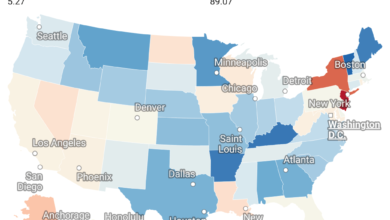The Benefits of Three-Day Weekends: Enhancing Wellbeing and Boosting the Economy

King Charles III’s coronation has increased the number of public holidays in the UK this year. The addition of a special public holiday on the Monday following the May 6 ceremony, along with the early May bank holiday and the spring bank holiday at the end, has undoubtedly resulted in a month of festivities for numerous workers.

In comparison to other countries, the United Kingdom, particularly England and Wales, observes relatively fewer public holidays. In 2023, the addition of the coronation celebration brings the total to nine, which is still fewer than most European Union countries. However, the notion that working more and having fewer holidays is indicative of economic success is not necessarily clear, considering that the UK has 11% higher annual working hours than countries like Germany.
Interestingly, when examining productivity based on GDP per hour worked in dollars, nine out of the top ten most productive OECD countries are located in continental Europe. These countries have a tradition of longer holidays. Additionally, there is evidence suggesting that national holidays have a small yet positive impact on economic activity, or at the very least, do not have a detrimental effect.
Several countries have recently conducted trials of a four-day working week, without any reduction in pay. One notable example is Iceland, where a large trial took place from 2015 to 2019. The success of the trial led to its implementation in nearly 90% of Iceland’s workforce, allowing employees to request a shorter workweek without experiencing any loss of income.
In New Zealand, a trial involving employees of Unilever yielded impressive results. The majority of participants reported feeling engaged, and absenteeism decreased by 34% during the trial. Moreover, the trial in the United Kingdom, conducted over a six-month period from June to December 2022, involved 61 companies and approximately 2,900 workers. Out of these, 56 businesses committed to continuing with the four-day week after the trial, as it was deemed a “resounding success.”
While it may initially appear economically unfeasible to pay 100% of standard wages for 80% of the previous work time, the UK trial demonstrated that the “vast majority of companies” were satisfied with the maintenance of business performance and productivity. Additionally, staff retention significantly improved, with a 57% decrease in the number of employees leaving participating companies during the trial.
The trials of implementing a four-day workweek have yielded substantial benefits for employees, particularly in terms of their overall wellbeing. According to the UK trial, 39% of participants experienced reduced stress levels, and an impressive 71% reported decreased burnout by the end of the trial. Moreover, the average mental health score, measured on a five-point scale ranging from poor to excellent, increased from 2.95 at the beginning of the trial to 3.32 by the end, representing a significant 13% improvement. Additionally, 54% of respondents reported a reduction in negative emotions, specifically anxiety.
Similarly, the four-day workweek trial conducted in Ireland in 2022 demonstrated a notable boost in employee wellbeing. Across the 12 Irish companies involved in the trial, participants experienced reduced anxiety and negative feelings while witnessing an increase in positive emotions and their expression throughout the trial period.
The New Zealand trial, mentioned earlier, further affirmed the positive impact of a four-day workweek on employee wellbeing. Over two-thirds of the participants reported an improved work-life balance, and stress levels, as measured, dropped by a remarkable 33% during the trial.Overall, these trials highlight the significant positive effects of transitioning to a four-day workweek, emphasizing enhanced wellbeing for employees, including reduced stress, decreased burnout, improved mental health, and a better work-life balance.







